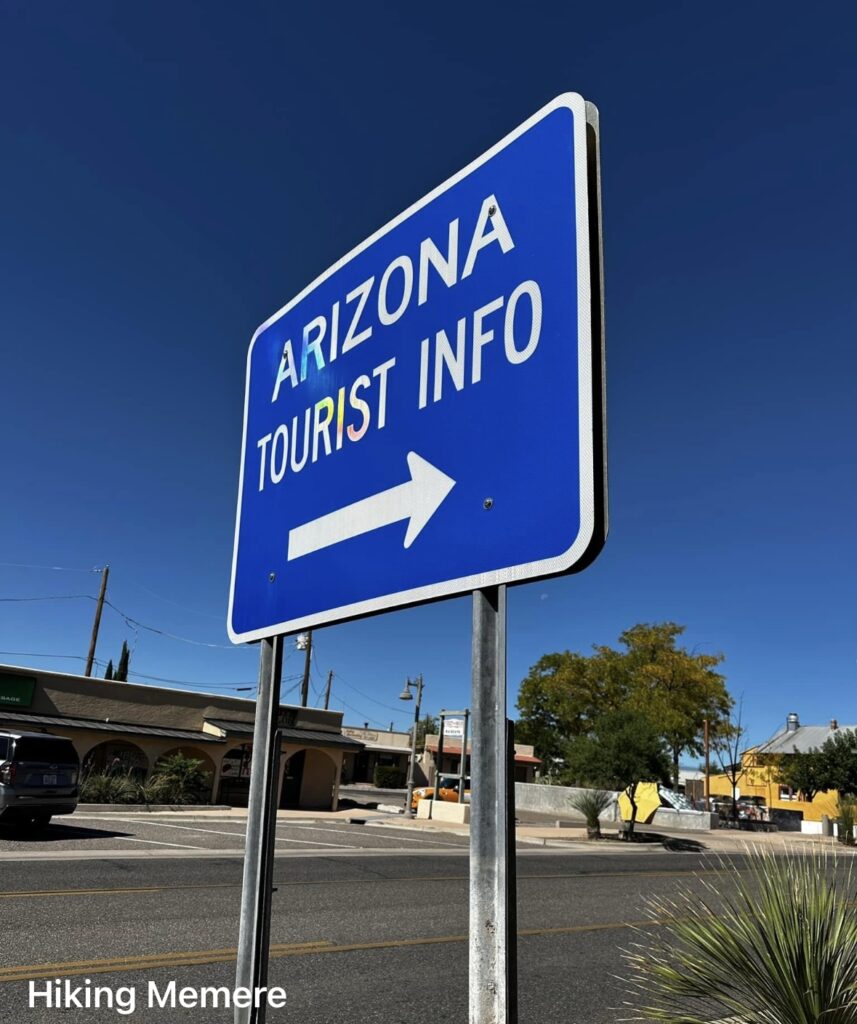
People ask what’s our secret to finding activities? We often hear people say I’ve lived here ten years and never heard of that hike or that place, how did you find it? The question is simple but the answer is more complex. We have no secret all-knowing way to find activities, lots of research on the internet and sharing with others have been successful approaches.
As we have traveled full-time we have become better at finding the local things. Every community is known for something, think of your own home town. Where would you take a friend if they only had a day to visit, or how about a week? This local flavor is why we explore.
We miss more than we find, which just means we have more to see on another trip, a good problem! If you are not getting the answers you are looking for, ask different questions. Often it is about discovering the right question to ask. Because no one source gives us all the information we are looking for, I will break down into sections our go to ideas.
Visitors Centers

Visitors Centers are a treasure trove of information and the volunteers we find working there are pure gold. Not all visitors centers are staffed by volunteers, but the ones which are have people who are passionate about their community and want to share what they deem the best characteristics and activities with you. I enjoy their excitement and dedication to help.
A few questions about their community will lead to information only a local would know. We ask questions about any local events happening or what would they recommend? Asking what they enjoy doing sometimes provides more information than what comes in any pamphlet.
Chamber of Commerce
Smaller communities often have a chamber of commerce or local business group, which is another great resource. Many times, local businesses have literature or menus available at the chamber’s office. It’s easy to search the internet to find the communities chamber and location, now they often have websites with lots of information, including upcoming community events.
Jess and I were enjoying a wine tasting in Cortez, CO a small town near Mesa Verde National Park, when another customer began asking us some questions about our travels. The woman serving the wine joined in our conversation and began talking about the many interesting activities in the area. She happened to be the local Chamber of Commerce director responsible for the three small towns we were near.
We purchased a glass of wine and listened to local stories and history of the area. It was a wonderful experience and we left with many places to explore that were not listed on any app or TripAdvisor type page. One of the best sources of information we have found is getting out into the community and participating in something, we usually come away with many more activities to try.
Literature & Guides
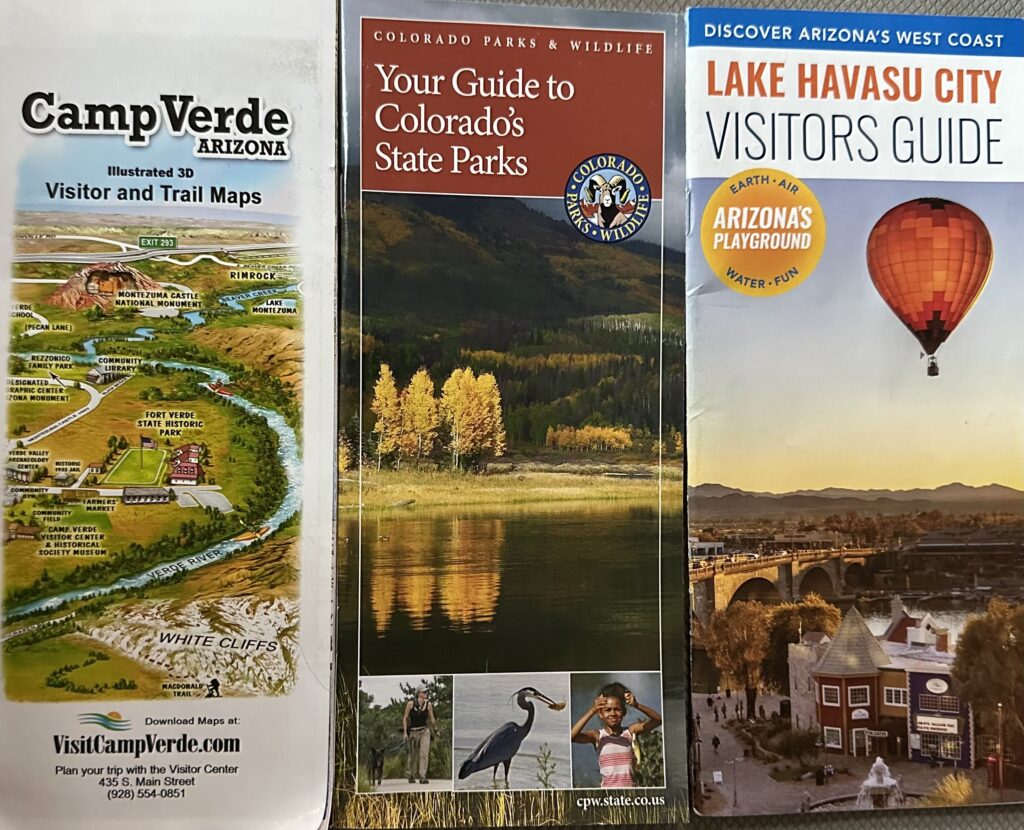
Literature & Guides are the traditional way to find information about a particular area. Today many people use apps or Google searches and all are excellent options that we use. But, the information found in this type of literature goes beyond what is in the printed words.
The ads which help pay for the production of this type of literature are local businesses. There are often coupons and details about special events, also their website information allowing us to look-up more if we choose. These local businesses are where we find the people with the best adventures!
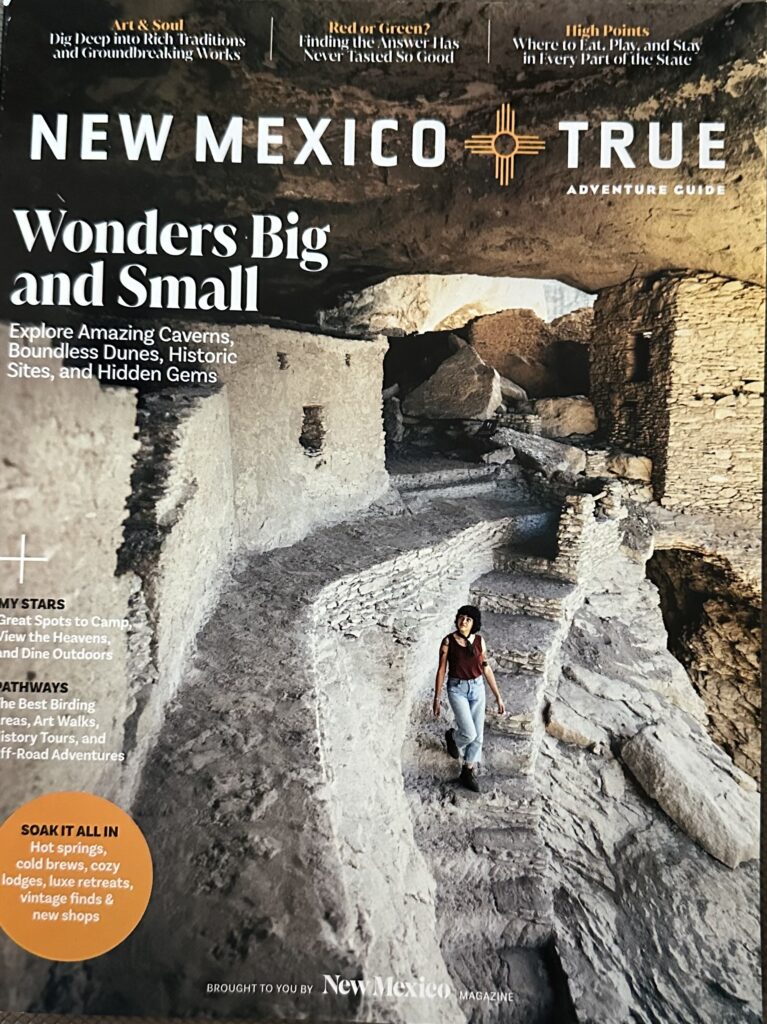
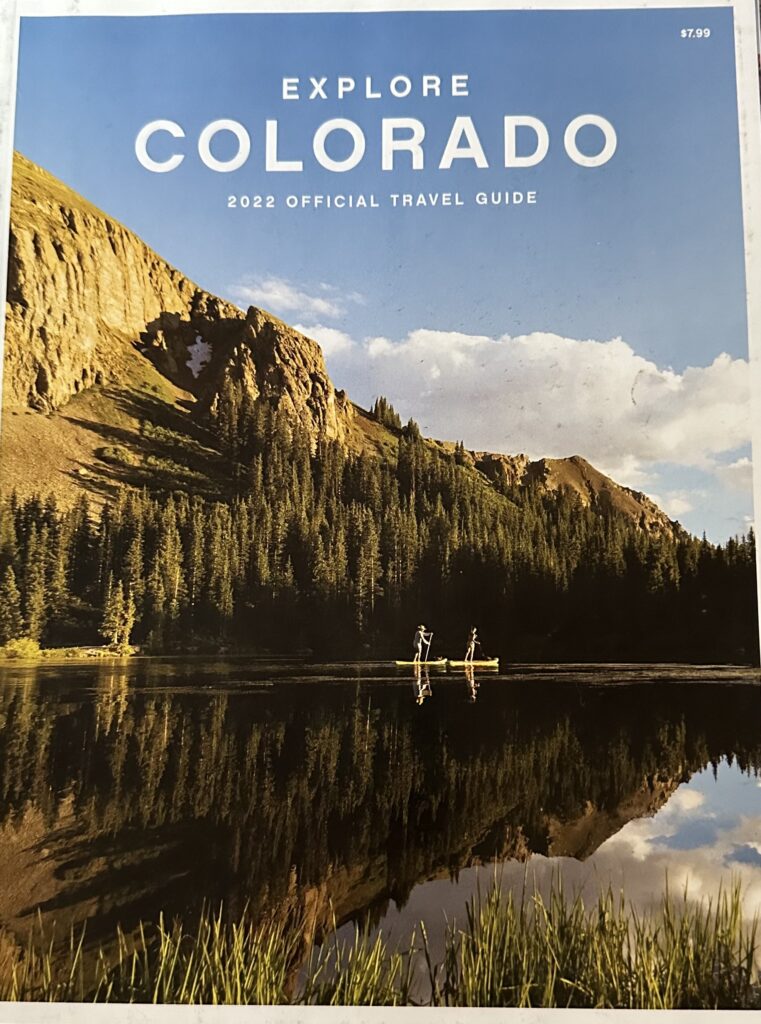
We picked up both of these visitor guides at a travel show we discovered. It was an entire auditorium filled with people trying to provide information about their state and convince us why we should visit. It was excellent! I would highly recommend attending one.
Park Headquarters & Rangers Stations

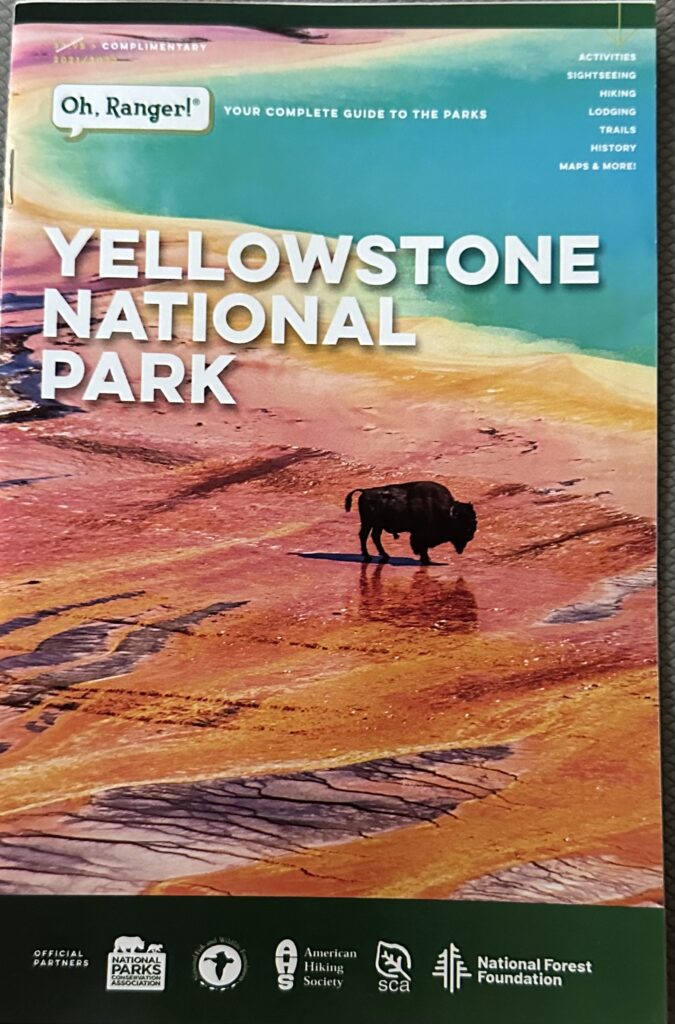
Both of these guides were picked up at their respective park visitor center. The visitor center or headquarters is always our first stop, when we visit a new park. Whether staffed by volunteers or rangers it is there genuine desire to help you have the best trip possible and enjoy your experience. We are offered maps and information about hiking trails as well as the schedule for any upcoming ranger talks being offered.
The literature provided typically includes maps and local history, as well as points of interest. One thing we do better now than when we first started out is mapping out a plan for an area. Once we have the maps and information we need we determine about how long the various activities will take, from there we choose what activities we want to do to optimize our time.
Another important thing which we have learned is, that it is very difficult to find information about a location until we are there. I’m not completely sure why, yet! But I am still working to find the key to unlocking this information before we arrive. We focus the majority of our research to where we are, as opposed to where we want to go, this saves us time and delivers better results.
Our Activities Calendar
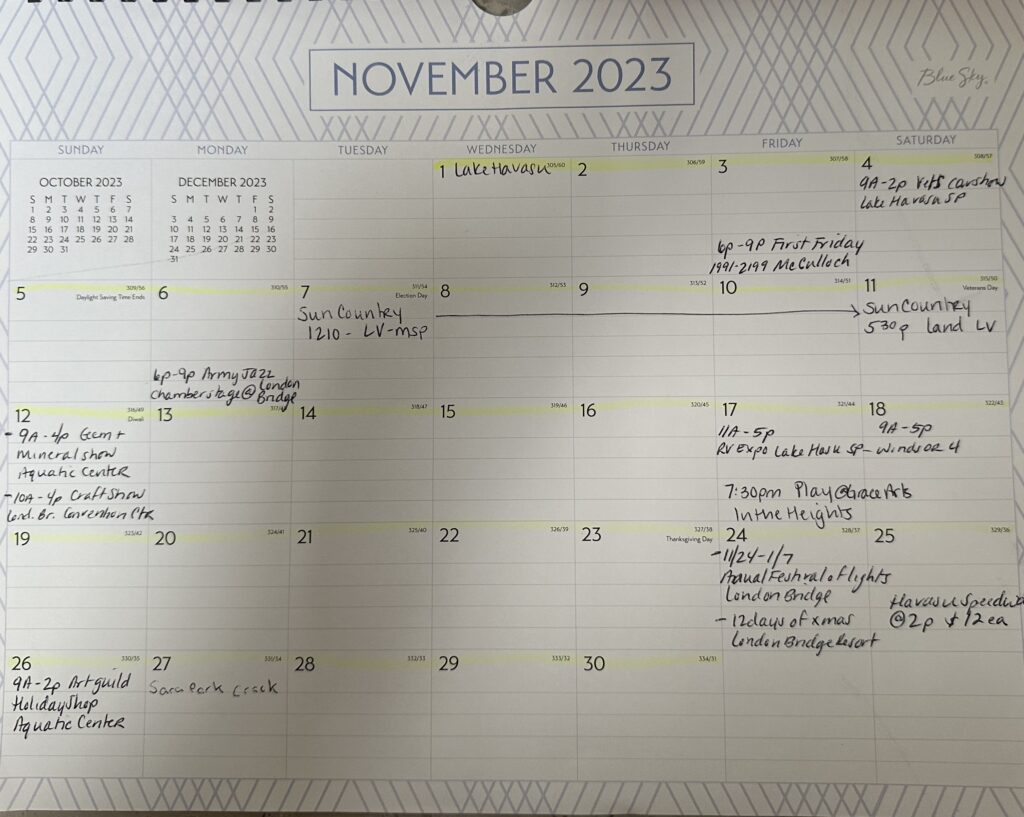
Jess began creating an activities calendar when we moved to Denver, CO. We tired of hearing about awesome activities we missed because we did not know about them. She went to the internet and searched What’s happening near me? I looked at local Facebook groups and found lots of information, often finding the most helpful stuff in the comments.
As we became better at searching for activities we found local event spaces and theaters and specifically looked up their schedules. Below is an example of the activities being offered at the RV park we are currently staying at. This is similar to community calendars you might find at the local library or on a town’s website.
We use our calendar as a guide. Activities we are interested in go on the calendar as an option. If it is beautiful weather we might go to the art festival instead of the museum. Our calendar also helps keep us organized. Where are we going to be, and when are we moving, when can we hike, and appointments we need to keep.
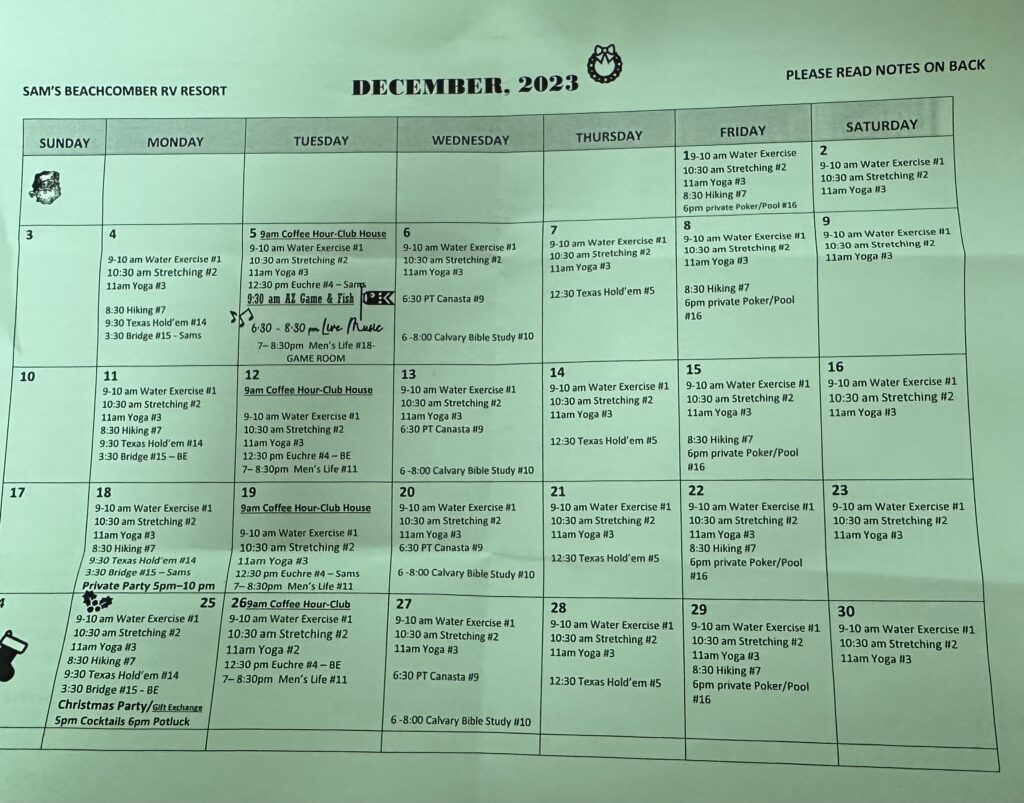
Social Media

Social media https://hikingmemere.com/following-blogs-and-social-media-how-to/ has become one of our best resources for learning about an area. Several months ago Jess and I decided to combine our individual Facebook profile and created Hikingmemere. Our initial goal was to save each other time by focusing our efforts and posting to one combined profile. Instead, what we found was a community of people with a wealth of information.
We began chronicling our journey and sharing to our hikingmemere profile as well as many other Facebook groups. The more information we shared the more information we learned from others. We provide detailed, interesting and helpful facts about the places we explore.
When we were in Camp Verde, AZ every hike we posted https://hikingmemere.com/sedona-hikes/ about gave us more hikes to research, many of these hikes were not in popular apps like Alltrails https://www.alltrails.com, Trailforks https://www.trailforks.com, and Avenza https://store.avenza.com/. We realized one of the best ways to learn about an area was to share what we were experiencing with locals and then listen to them.
This part of our journey has been an unanticipated and enriching connection to others interested in our adventures.
Spreadsheet
I’m showing my age, spread sheets still play a role in my planning and research. When I see a social media post of a cool place to visit I take a screen shot of it. Then, as I have time I add the relevant information to the proper state spreadsheet and delete the pictures. When we are planning to visit an area I look-up this saved information.
This simple process allows us to capitalize on others research, saving us time and focusing our adventures to activities we are most interested in.
Our Best Secret
Our best secret or advice is to get out and explore. There are many wonderful apps to find roadside attractions and in any community it easy to search what is happening near you. Visitors centers, Chambers of Commerce, Libraries and community websites are a wealth of knowledge. But the key is using what you find and get out into the community to explore.
Each hike we complete we meet other hikers who we learn more information from. Restaurant staff, store clerks, and bartenders are also great sources of local knowledge. Communication is key, get out there talk to people share what you know and listen to what others have to say. This combination of resources helps us find some of the best local activities! Live Simple Live Happy